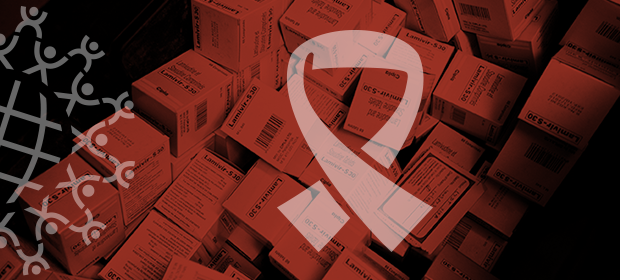Where We Work
See our interactive map


In Central America, frontline health workers are using IntraHealth International’s mobile phone-based alerTAR system to let HIV clients know when, where, and how they can keep getting their antiretroviral therapies (ART), now that public transit and outpatient services in the region have halted due to the COVID-19 pandemic.
These closures and shutdowns are leaving many clients unsure about where to pick up their medications and making it difficult for them to adhere to their HIV treatment regimens. So IntraHealth’s USAID HIV Care and Treatment Project repurposed its alerTAR system—a low-cost, CommCare-based tool that helps health workers at 26 ART clinics in El Salvador, Guatemala, Honduras, and Panama send treatment reminders via SMS—to reach thousands of clients who may be cut off from their usual health facilities and connect them to distribution points for retrieving their lifesaving medication.
Clients who receive SMS reminders are 80% more likely to reach viral suppression.
“Our alerTAR system was originally designed to send appointment and medication reminders, but COVID-19 introduced new challenges for keeping people living with HIV on treatment,” says IntraHealth’s Ricardo Lopez, the Guatemala-based IT advisor on the project who upgraded alerTAR for COVID-19 response. “Because contact information for some 10,000 HIV clients was already set up in alerTAR, we have been able to quickly roll out mobile outreach to HIV clients, letting them know if their nearest clinic or laboratory is closed, whether there are alternative hours or a contact number for making a new appointment, and most importantly where they can go to pick up their prescriptions while services are suspended.”
Central America is home to around 145,400 people who live with HIV, less than half of whom (70,200) are on ART. As of March 30, there were 1,198 cases confirmed cases of COVID-19 in the region, according to the Sistema de la Integración Centroamericana (SICA).
alerTAR allows health workers to send SMS appointment and medication reminders directly to ART clients’ mobile phones. The system triggers alerts for health workers when a client has missed appointments and is at risk of falling off treatment.
“We’ve found that clients who receive SMS reminders about their appointments and medication are 80% more likely to reach viral suppression,” says Ricardo Mendizabal, the project's senior HIV/AIDS advisor. “The percentage is even greater among key populations—men who have sex with men, for example, are 190% more likely to reach viral suppression than clients who don’t receive the SMS messages through alerTAR.”
In this emergency due to COVID-19, alerTAR has become more useful and effective.
IntraHealth’s Central America team has also moved quickly to provide health workers—including community liaisons and facility-based adherence promoters and data clerks—with the guidance on biosafety and personal protective equipment they need to keep working and stay safe while delivering ART to clients in their homes and communities during the pandemic.
“In this emergency due to COVID-19, alerTAR has become more useful and effective,” says Ibe Isael Martir, a community liaison at Hospital Saldaña in El Salvador. “Since March 19, 41 patients have been treated and retrieved their ART and all of them stated that it was the message on their cell phone that reminded them of their appointment and motivated them to come for their medication despite the state of emergency and closure of the hospital for outpatient services. All of them received a two-month supply of medication to last for March and April and a new appointment was scheduled. All have expressed appreciation for the quality care they’ve received in this time of global crisis.”
The HIV Care and Treatment Project is led by IntraHealth International with funding from the United States Agency for International Development. alerTAR uses Dimagi’s CommCare mobile data collection platform.



